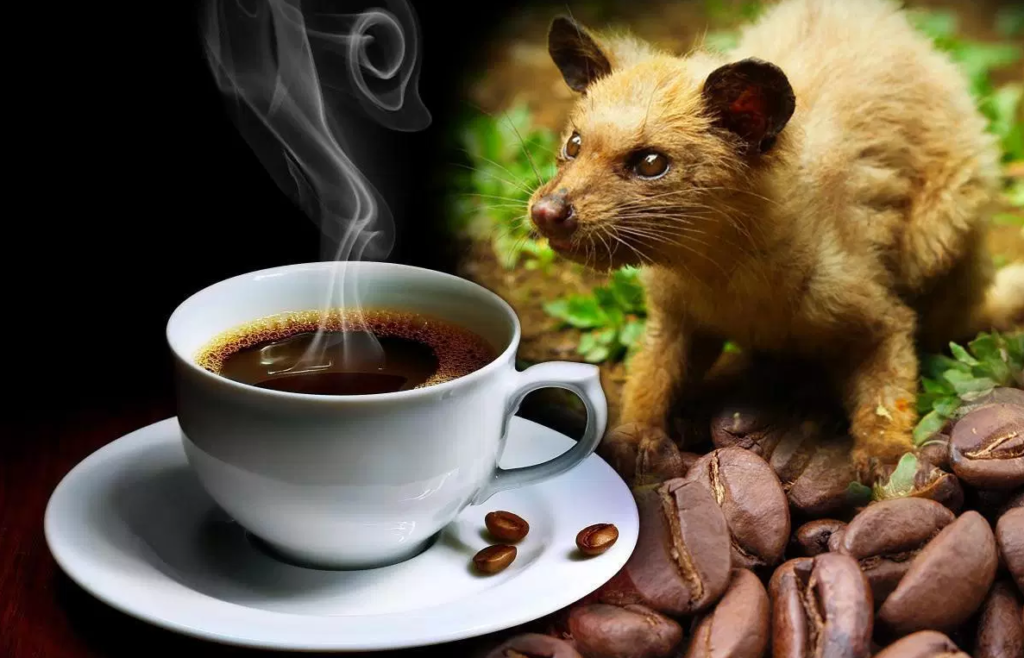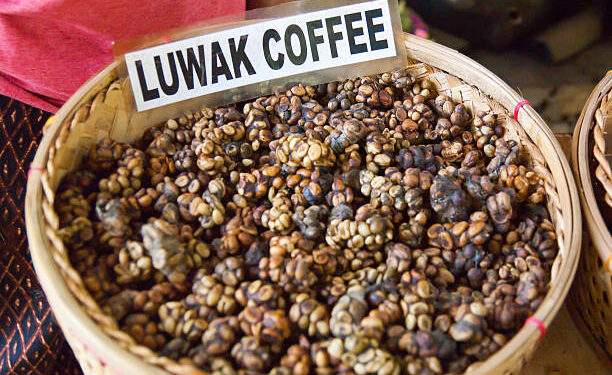- Author: GREAT MASTER VIKRANT ROHIN
- Date: MAY 3, 2023
The most expensive excrement food of the richest people
The most exclusive (and most costly) coffee in the world is called kopi luwak. The unusual production method is the primary cause of its high cost. It is made from coffee beans that the Indonesian palm civet expelled after digesting them only partially. Yes, it does sound a little disgusting, but don’t worry! During processing, the coffee bean’s outer covering is removed, and the remaining beans are thoroughly cleaned before being roasted and delivered to you.
It costs a lot to drink Kopi Luwak coffee. The cost of a cup of coffee ranges from $35 to $100, which is roughly 20 to 60 times the cost of a cup of coffee. Kopi Luwak is also more expensive per pound than regular coffee, despite its similar taste. Kopi Luwak coffee can range in price from $100 to $600 per pound, while regular coffee can range in price from $3 to $5. This coffee is one of the most expensive and rare. Furthermore, it is more expensive than regular coffee. Kopi Luwak coffee costs between $100 and $600 per pound, which is more than 20 to 60 times the cost of regular coffee. Because of the rarity of Kopi Luwak coffee, the price is higher, but it also stems from the fact that the coffee is more expensive to produce. Coffee from Luwak is sold for 600 USD per kilo, while Kopi Luwak is sold for up to 3,000 USD.
ORIGIN
The Indonesian name for coffee is kopi, while the word for a tiny cat-like mammal that resembles a ferret is luwak. As a result, Kopi Luwak is frequently referred to as cat poop coffee, a well-known moniker. That moniker is not totally true because civets, specifically Asia Palm Civets, are not actually felines. They are a related species of animal that are indigenous to Southeast Asian nations like Vietnam, the Philippines, and Indonesia.
The civets are crucial to the creation of Kopi Luwak, sometimes known as “cat poop coffee.” To begin with, they are the quality gatekeepers because they pick through the coffee cherries and toss any poor or harmed fruits. So let’s get this out of the way: Kopi Luwak only includes the best coffee.The process of going through the civet’s digestive tract enhances the flavour of the coffee in addition to aiding with cherry selection. In the civets’ stomachs, a unique enzymatic process takes place where acids and beans interact. The beans become smoother and less acidic as a result.
What Flavour Does Kaya Kopi Luwak Have?
It has a strong scent and is noticeably not bitter. It boasts a sophisticated flavour profile that is silky, earthy, sweet, and slightly chocolatey.

Plantation Programme
Multiple plantations raise palm civets for Kopi Luwak, sometimes in abhorrent conditions, due to the beverage’s extreme popularity. In addition to being cruel, this causes the civets’ digestive systems to get damaged from an uneven diet, which leads to subpar coffee. The beneficial enzymes found in luwak play a part in the enchantment of kopi luwak. This enzymatic process won’t be efficient if the diet is inefficient. At Kaya Kopi, every civet leads a cage-free and healthy life.
SAFETY
After being meticulously cleaned, the beans are roasted at a high temperature (more than 400 degrees Fahrenheit). Both procedures guarantee that Kopi Luwak is safe to consume. Consider it this way. That tender, marbled T-bone steak is really a piece of animal carcass. Potatoes grow in dung, cheese is nothing more than a lump of mouldy, old milk, and farm-raised mushrooms grow on old chicken poop.
Kopi Luwak, Civet Coffee, Coffee Alamid, and Weasel are all abbreviations for the same coffee. Different coffee names can be used to describe various aspects of a coffee, depending on the origin. Coffee is produced by the Luwak hill tribe in the Philippines’ highlands. KopiLuwakDirect.com is the sole distributor of our coffee in the Philippines. Although our coffee has a one-year shelf life, we recommend drinking it within eight months of roasting. We provide free standard shipping on orders worth $50 or more.
Starbucks
Our kopi luwak is 100% natural, and it comes from wild civet cats in their natural habitat. A single cup of this coffee will set you back Rs 3000. Cats eat it and it has become known as kopi luwak coffee in the United States.



